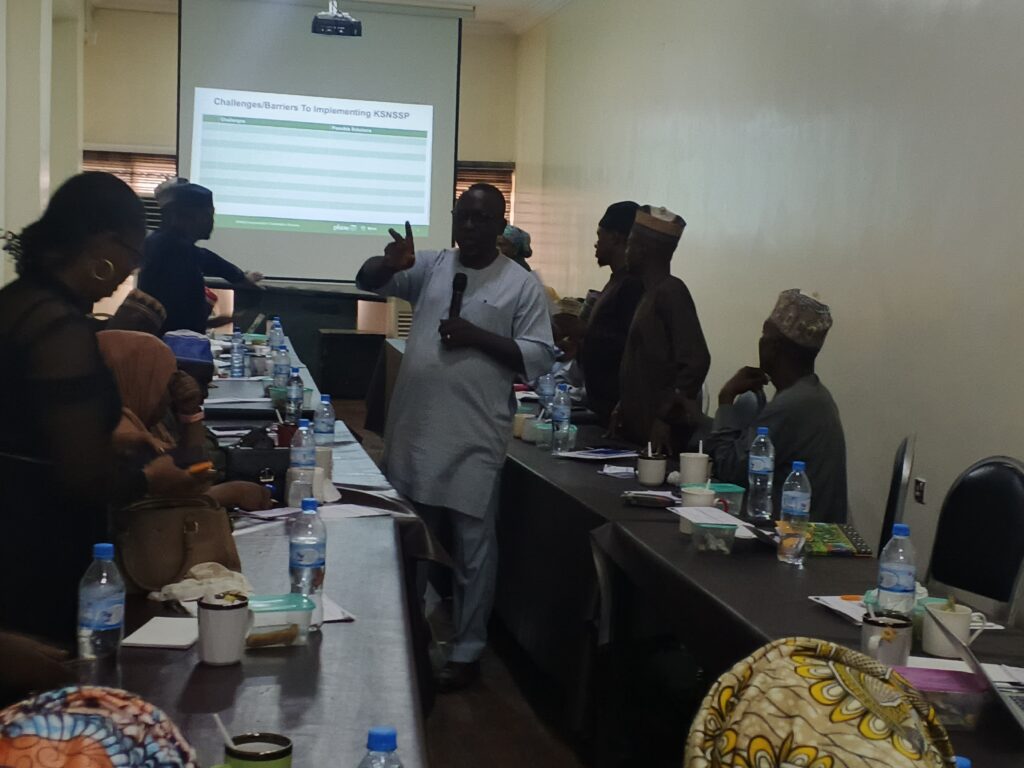By Salisu Hamisu Ali
Education stakeholders in Kano State have commenced a workshop to develop an implementation plan for the newly approved Kano State Non-State Schools Policy, aimed at regulating and improving the quality of private, voluntary, Islamiyya, and Tsangaya schools across the state.
Speaking during the workshop on Tuesday, Dr. Auwal Halilu, Co-Chair of the Kano State Accountability Forum on Education (KSAFE), said the forum was convened to discuss how best to implement the policy recently approved by Governor Abba Kabir Yusuf.
According to him, the policy seeks to harmonise all non-state schools under a unified framework covering curriculum, textbooks, data management, and quality assurance.
“The essence of this workshop is to discuss how the state should implement the policy, especially when many non-state schools operate without enough trained teachers,” Dr. Halilu said. “Our concern is how to bring Islamiyya schools, voluntary schools, private schools and other non-state institutions together so that Kano State moves in the same direction academically.”
He explained that the policy is expected to improve literacy rates by integrating non-formal learning centres into the mainstream education system.
“Someone who attends a non-formal school is still counted as out-of-school because of lack of reliable data. With this plan, once Tsangaya and Islamiyya systems offer literacy and numeracy, their learners will also be counted as literate. This will reduce illiteracy drastically,” he said.
Dr. Halilu added that the forum is working closely with Islamic school owners and other non-state actors to ensure they understand the importance of joining the state-regulated system.
“We are here with them, advocating for them to come into the mainstream. Their fears are now downplayed, and they are willing to improve their standards in line with global best practices,” he noted.
Also speaking at the event, Mrs. Tina Eze, General Secretary of the National Association of Proprietors of Private Schools (NAPS), said the new policy is “a very good initiative” but must be implemented with careful consideration.
“We are here to see how the policy will affect both private and public schools. On our part, we believe it is a good policy, but we must look critically at what is needed to make it effective,” she said.
Mrs. Eze highlighted several challenges facing private schools, including multiple taxation and high rent charges by landlords.
“Many private schools are closing down because of rent increases of up to 150 or 200 percent yearly. After paying rent and salaries for over 20 teachers, schools are left with almost nothing,” she explained.
She appealed to the government to regulate rent increments and reduce taxes on private schools to enable them to comply with the new policy.
The Kano State Non-State Schools Policy provides a comprehensive regulatory framework for private, voluntary, Qur’anic, Islamiyya, Tsangaya and community schools. It outlines standards for registration, staffing, taxation, safety, inclusion, WASH facilities, monitoring and evaluation.
The policy replaces an old two-page guideline deemed inadequate for regulating the rapidly growing non-state education sector.
It also empowers the Kano State Private and Voluntary Institutions Board (KSPVIB) to oversee licensing, regulation and quality assurance for non-state schools.
Stakeholders at the workshop are expected to produce an actionable implementation plan that aligns all school operators with state requirements while improving learning outcomes across Kano State.

